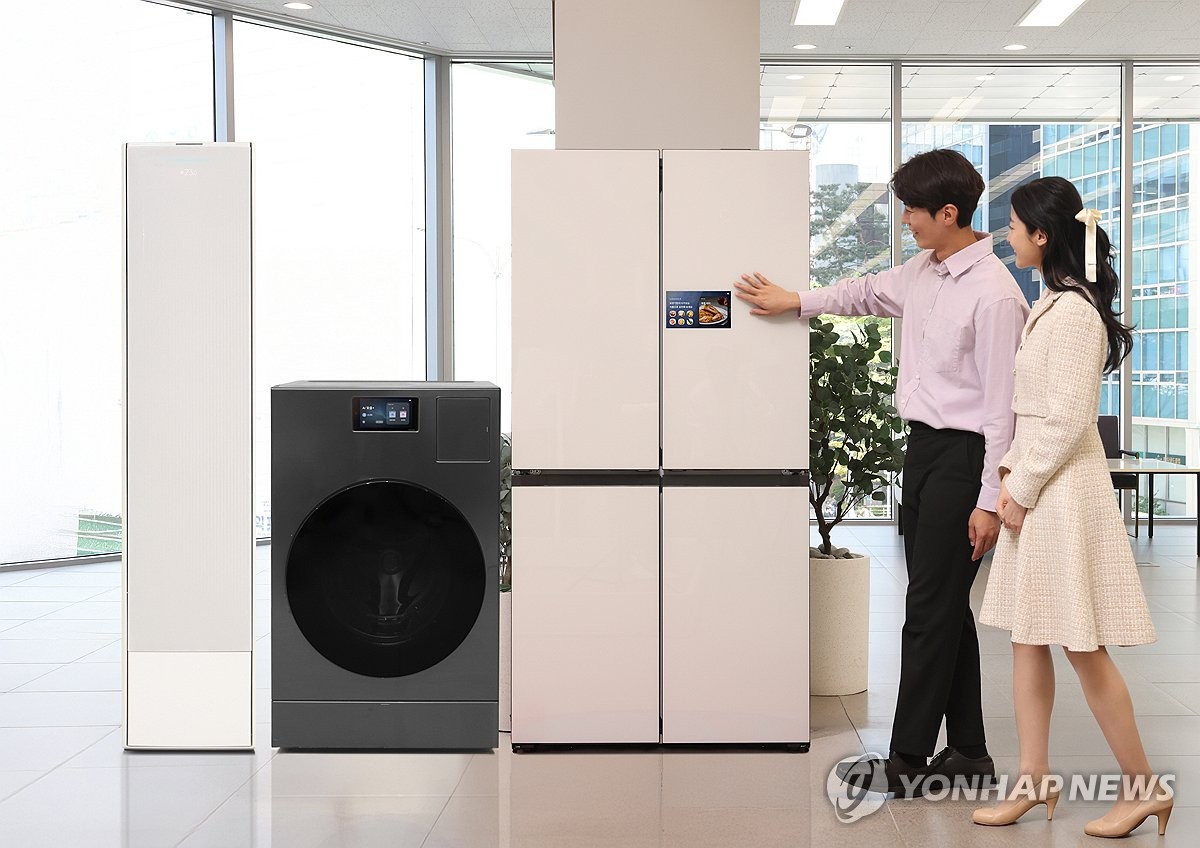Samsung, LG on alert as U.S. plans additional 50 pct steel tariff on appliance imports

SEOUL, June 13 (Yonhap) -- Samsung Electronics Co. and LG Electronics Inc. are scrambling to assess the impact of Washington's decision to add home appliances to a list of derivatives subject to a 50 percent steel tariff, according to industry sources Friday.
The U.S. commerce department has published a notice on the Federal Register, noting that the tariff will be assessed on various home appliance imports, including refrigerators and washing machines, based on the value of the steel content in each of them. The measure will take effect on June 23.
Although both Samsung and LG operate manufacturing plants in the United States, local production is limited primarily to washing machines. A significant portion of other key products is still manufactured in countries such as South Korea, Mexico and Vietnam, making the companies vulnerable to the tariff increase.
"We are closely analyzing the impact of the latest U.S. action, particularly within the relevant business divisions," an industry official said on condition of anonymity. "We are exploring a range of possible responses."
Given the high steel content in home appliances, the new tariff is expected to push up production costs and tighten profit margins. LG had already hinted at possible price increases during its first-quarter earnings conference call.
"If tariffs drive up prices, Korean firms may lose price competitiveness compared to U.S. manufacturers," Hur Joon-young, an economics professor at Sogang University, said. "In the long term, they may have to consider relocating more production to the U.S."
Both Samsung and LG are reviewing their global manufacturing strategies in response. Samsung has said it will expand premium offerings and adjust production locations to mitigate tariff exposure.
"The most effective solution would be to increase production volume within the U.S. to bypass the tariff. At the same time, the South Korean government should also engage in trade negotiations to seek tariff relief," Kim Dae-jong, a business professor at Sejong University, said.
LG Electronics is reportedly considering gradually shifting the production of washers and dryers to its Tennessee plant, aiming to raise the proportion of U.S.-bound appliance sales covered by local manufacturing to the high 10-percent range.
Cho Joo-wan, chief executive officer (CEO) of LG, said in April that building a manufacturing base in the U.S. would be the "last resort" move, emphasizing that the company would first pursue other strategies, such as changing production sites or raising prices, in dealing with the tariff situation.
odissy@yna.co.kr
(END)





